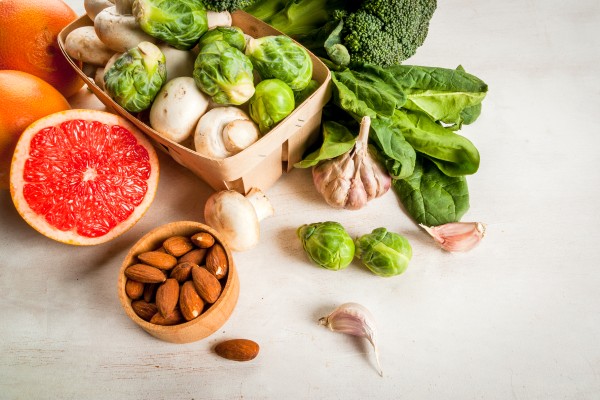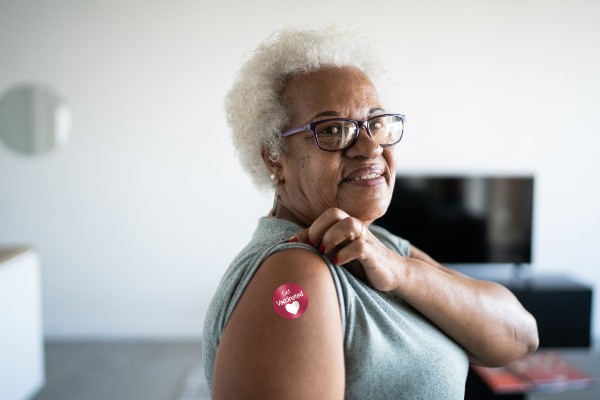As the threat of coronavirus disease 2019 – or COVID-19 – continues, many people are looking for ways to stay healthy.
Hand-washing and social distancing can prevent the spread of COVID-19 and other illnesses. But what if you could do more? It turns out you can.
Taking good care of your body can prepare your immune system to fight infection.
Making healthy lifestyle choices – especially those that improve your diet and sleep – can give your immune system an advantage.
“The foods we eat supply our bodies with important immune-boosting vitamins, minerals and nutrients. And a good night’s sleep — 7-9 hours for adults — gives your body time to produce and release infection-fighting proteins called cytokines,” says Mackenzie Butler, RD, registered dietitian with Riverside Health.
Here are seven tips to maximize your diet and get better sleep:
1. Avoid afternoon caffeine cravings
Many people turn to caffeine to help them wake up in the morning or stay alert throughout the day. But experts suggest you cut caffeine with plenty of time to spare before bed. That’s because caffeine can stay in your system for 5-6 hours.
Even if you find it easy to fall asleep after a late-night cup of coffee, your sleep can suffer. Caffeine can cause you to wake frequently throughout the night. It can also leave you feeling fatigued in the morning. Caffeine prevents your body from achieving deep restorative sleep needed to feel rested.
2. Choose from a variety of foods
To get the most immune-boosting benefit from your diet, choose foods from all five food groups: vegetables, fruits, grains, dairy and proteins. Fruits and vegetables are loaded with vitamin C, and dairy products and whole grains contain zinc.
3. Get plenty of exercise
Exercise is good for your body and your mental health. Staying physically active can also help you to achieve better sleep. Your gym may be closed, but there are still plenty of ways to keep moving. If you don’t have in-home exercise equipment, head outdoors for a walk, jog or bike ride. When the weather isn’t cooperating, do laps around your house or climb your home’s stairs.
4. Limit alcohol intake
Consuming too much alcohol can have negative effects on the immune system. Alcohol can also lead to dehydration. If you are planning to raise a glass, follow the U.S. Dietary Guidelines for Americans:
- Women: Up to one drink per day
- Men: Up to two drinks per day
5. Soak up some vitamin D
Vitamin D has been shown to reduce the risk of colds and flu. Soak up some sun to increase your body’s vitamin D production. If the sun isn’t shining where you live, try adding vitamin D-rich foods to your diet. These include:
- Eggs
- Fatty fish (like salmon, tuna and mackerel)
- Mushrooms
- Whole milk or 2 percent milk
6. Stop nighttime scrolling
With today’s 24-hour news cycle, COVID-19 information is being produced and shared at an alarming rate. It may be tempting to end your day scrolling through daily COVID-19 updates on your phone or tablet, but experts caution against it.
According to the National Sleep Foundation, the light from digital screens can keep your body from producing the hormone that controls your sleep cycle. Also, the content you read on your digital device can keep you – and your mind – from relaxing.
7. Take a nap
Many Americans are living in states that have issued stay-at-home orders. With lives and schedules disrupted, you may find you have extra time to fill. Consider using downtime to catch up on rest. Short naps during the day can help you to recharge. Limit naps to 30 minutes to get the most benefit without disrupting regular sleep patterns.
For those still reporting to work (physically or virtually), consider grabbing a quick nap during your lunch hour.
A better prepared body
No matter what you do to stay healthy, remember that you can still get sick. The extra steps you take now to boost your immune system will ensure your body is better prepared to respond.



